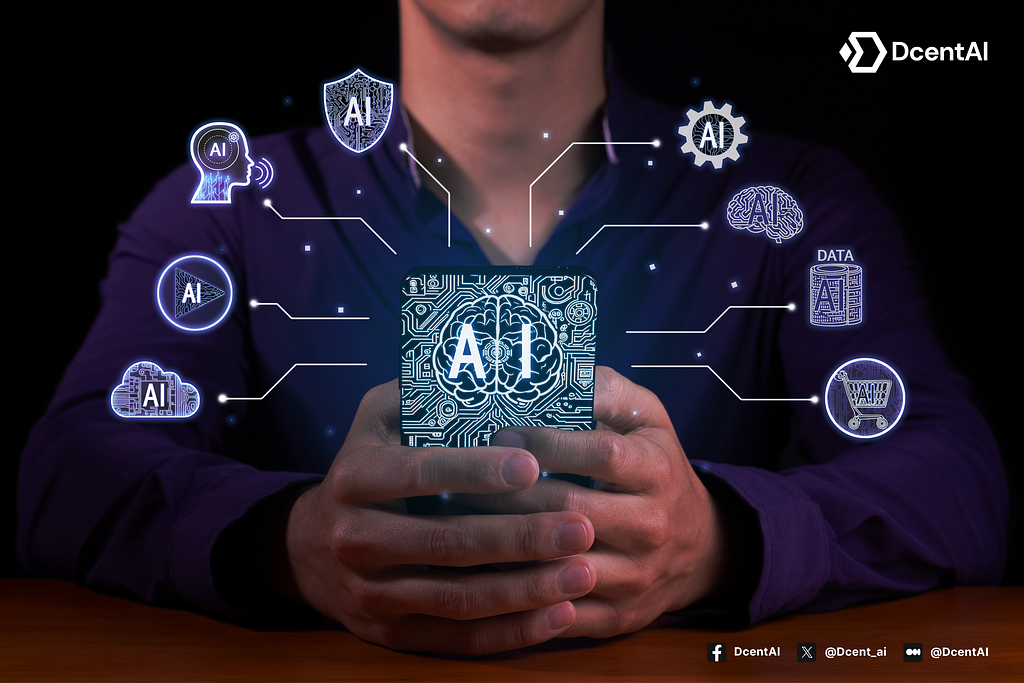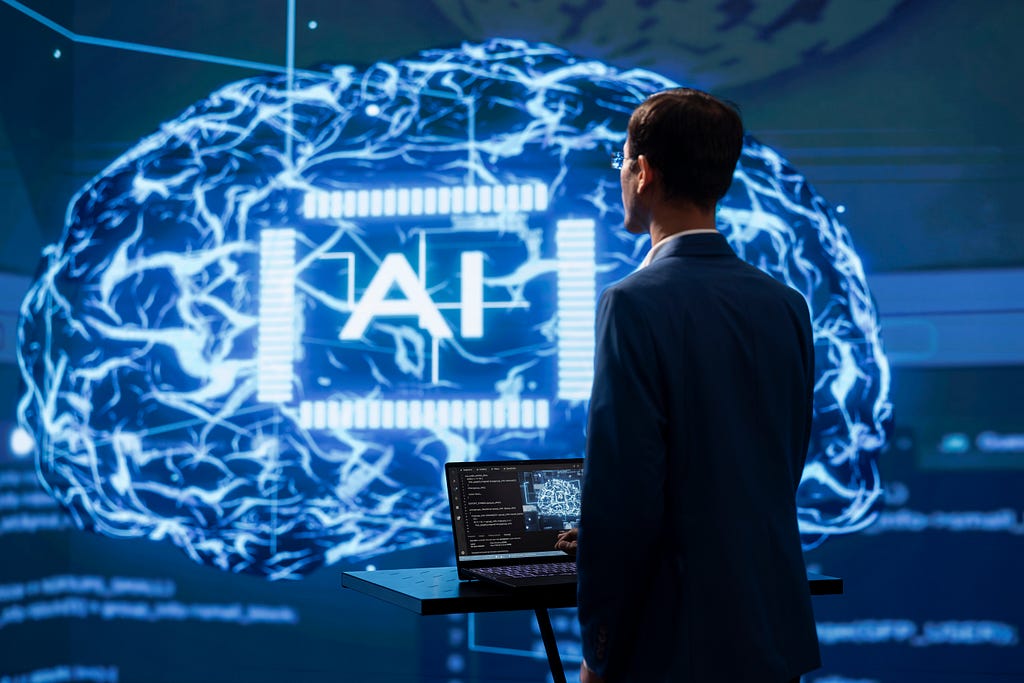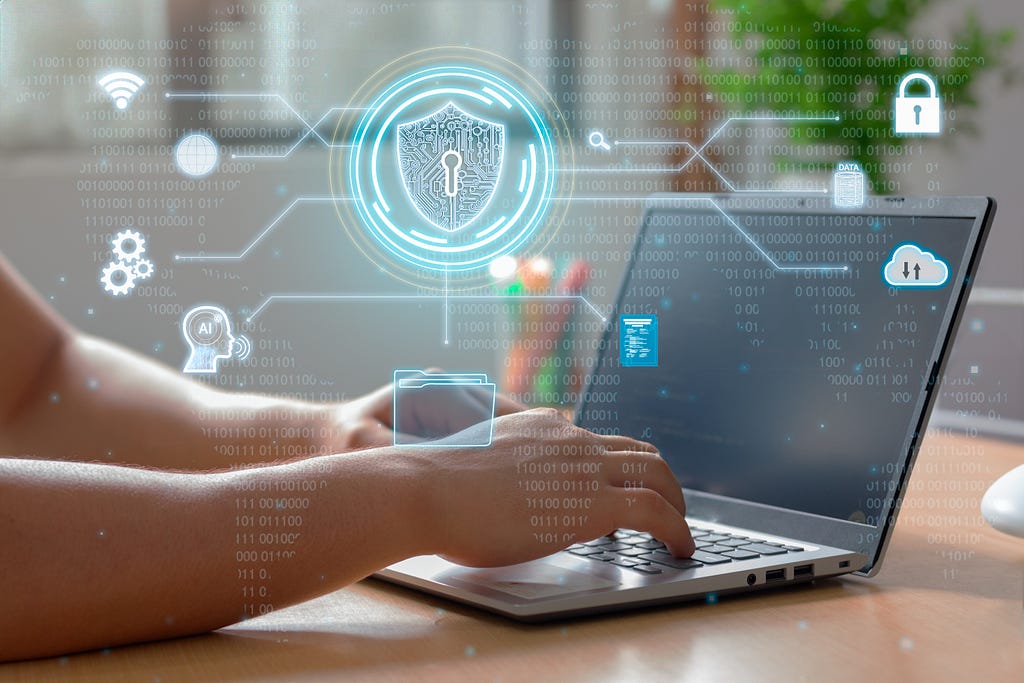How Decentralized AI is Driving Innovation Across Industries

Artificial intelligence (AI) has swiftly evolved from a novel topic to a major innovation engine across various sectors. It is widespread among self-driving vehicles and voice-activated assistants boosting their capacities and comprehension of many jobs. As AI progresses, a new technology known as Decentralized AI emerges. This technique contrasts with traditional centralized AI, which relies on a single entity to manage data and process tasks.
Instead, Decentralized AI spreads these responsibilities among a network of linked nodes, improving privacy, security, and the ability to manage large amounts of data.This article will explore how Decentralized AI works, highlighting its fundamental concepts and benefits compared to traditional AI models. Furthermore, we will also explore how DcentAI led this shift by offering a decentralized network that empowers businesses and engineers to use AI’s potential.
Become a pioneer of DcentAI community!What is Decentralized AI?Decentralized AI is a paradigm in which artificial intelligence frameworks are developed, managed, and implemented throughout a distributed network rather than controlled by a single entity or infrastructure. This method makes more autonomy, security, and scalability possible by distributing data, processing, and AI models among several network-connected nodes (computer units).
Decentralized AI empowers collaboration and asset sharing among different groups, avoiding power being held by just one entity or framework. Unlike centralized AI, which puts all control and assets in one spot, decentralized AI makes the network more adaptable and better able to handle failures and cyberattacks. This setup makes the framework more open and less dependent on central control.
How it Differs from Centralized AI:The main difference between decentralized AI and centralized AI lies in their structure and handling of AI models, data, and computational resources. In centralized AI, data are stored and processed on centralized servers, with one institution or entity managing the complete AI lifecycle, from data collection to model deployment. This centralized model can influence inefficiencies, heightened vulnerability to cyberattacks, and issues related to data security. Scalability also becomes a limiting element when the need for processing power increases.
Decentralized AI, on the other hand, spreads data and processing duties among various nodes, typically using blockchain or distributed ledger technology. This decentralized strategy decreases the dangers of single points of failure, advances data privacy (since sensitive data can stay local), and empowers more scalable AI frameworks by utilizing resources throughout a complete network. Decentralized AI underpins innovation and collaboration by democratizing access to AI, permitting various companies or individuals to train and improve AI models without depending on a central authority.
Core Components:Here are the core components of decentralized AI:
Distributed Data: In Decentralized AI, data is not stored in a central server but instead distributed across multiple nodes. Each node may hold part of the data or operate on its local dataset, ensuring that no single entity has complete access to all information. This approach enhances data security and privacy, as users can retain control over their data, and sensitive information never needs to be pooled into one centralized database.
Decentralized Networks: A decentralized network is composed of connected nodes that communicate with one another to process data and trade resources and collaborate on AI model training. These networks rely on technology such as blockchain to empower secure, transparent, and efficient data transmission and processing. In decentralized systems, no single individual controls the whole network, which promotes trust and lowers the threat of censorship or malicious manipulation.
Collaborative AI Models: Decentralized AI frequently trains machine learning models together, with each node contributing to the overall model without sharing raw data. It can be fulfilled via federated learning, where nodes train original models with their data and exchange model updates( rather than raw data) with a central server or other nodes to modify the global model. This joint approach ensures that AI models benefit from diverse data sources while considering user privacy and avoiding data silos.
How Decentralized AI Works
The main difference between centralized and decentralized AI is how the AI models, data, and computational assets are structured and managed. Centralized AI implies that a single organization manages the whole AI lifecycle, from data collection to model deployment, and that all data is regularly processed and stored on centralized servers. This management concentration can lead to inefficiencies, greater cyberattack vulnerability, and data security dangers. Additionally, scalability becomes a constraint when the need for processing power increases.
Conversely, decentralized AI distributes data and processes responsibilities across various nodes, frequently utilizing blockchain or distributed ledger technologies. By using assets from a larger network, this decentralized approach decreases the risks related to single points of failure, improves data privacy (basic information can remain nearby), and promotes the creation of more scalable AI systems. By empowering more comprehensive access to AI, Decentralized AI fosters innovation and collaboration, allowing multiple organizations or individuals to engage in the training and enhancement of AI models without reliance on a central authority.
Advantages of Decentralized AIHere are some of the advantages or pros of decentralized AI:
Enhanced Data Privacy and SecurityDecentralized AI improves data security and privacy by eliminating the centralized storage of sensitive data. In a centralized framework, large volumes of user data are accumulated and kept in a single location, which leaves them vulnerable to hackers and illegal access. With Decentralized AI, data is kept locally at each participating node, meaning sensitive information doesn’t need to travel across the network or be stored in a single location.
This local storage reduces the risk of data breaches and ensures that individuals or organizations retain control over their data. DcentAI exemplifies this advantage by providing a decentralized network that ensures users can securely store and process their data without the risk of exposing it to central authorities, leveraging encrypted connections and robust network security protocols to safeguard privacy.
Increased ResilienceDecentralized artificial intelligence improves framework resilience by lessening reliance on a single point of failure. A central server or database failure in conventional centralized architectures can cause a total framework shutdown, resulting in service disruptions or data loss. In contrast, in a decentralized network, duties are spread among several nodes, permitting the framework to continue operations even if one node fails, resulting in continuous service.
Additionally, the decentralized structure complicates efforts by attackers to paralyze the entire network. DcentAI ensures increased resilience by deploying its AI network across multiple countries, offering 99.9% uptime and guaranteeing that the distributed system remains robust, even in node failures or regional issues, providing uninterrupted access and continuous operation for its users.
ScalabilityDecentralized AI enables better scalability than centralized systems by expanding operations across numerous nodes, locations, and participants. While the capacity of their centralized infrastructure limits centralized systems, decentralized models can grow dynamically as new nodes are added to the network. It allows AI systems to scale more efficiently and handle increasing data volumes and computational demands without being constrained by centralized server capacities.
DcentAI offers a scalable solution by enabling AI businesses to tap into a decentralized computing power and storage network, leveraging resources from over 40 AI partners across more than 20 countries. This global reach allows businesses to scale their AI operations seamlessly, ensuring consistent performance as demand grows.
Democratization of AIOne of the significant benefits of Decentralized AI is the democratization of artificial intelligence capabilities. By distributing AI resources among various participants, decentralized frameworks reduce the barriers to entry for individuals, small enterprises, and organizations that may lack the financial or technical means to utilize centralized AI frameworks. This approach encourages innovation by empowering more individuals to participate in and contribute to AI development.
DcentAI is instrumental in setting up an open and available decentralized network where users — from developing startups to established corporations — can collaborate, utilize AI-driven services, and advance sophisticated AI models. By providing permissionless access and guaranteeing a fair and transparent platform, DcentAI enables a global community to leverage the potential of AI and foster innovation across various sectors.
Impact on Industries of Decentralized AI
Here are some of the impacted industries by this revolutionary technology of decentralized AI:
HealthcareDecentralized artificial intelligence improves healthcare by facilitating secure data exchange, customizing medical treatments, and enhancing individual accuracy. Patient information can be stored and processed locally, securing privacy while promoting secure collaboration among healthcare professionals. AI can estimate decentralized datasets for more precise diagnoses and personalized treatment strategies. DcentAI supports healthcare by offering a safe, decentralized platform for collaboration and research, helping to improve patient care while maintaining data privacy.
FinanceDecentralized AI enhances fraud detection, transaction security, and consumer insights in banking. By monitoring transactions over a decentralized network, AI models may quickly and securely identify fraud. It also delivers more in-depth data about client behavior, which improves customization. DcentAI permits financial institutions to use AI-powered analytics to identify fraud and improve data protection, promoting a secure financial environment.
Supply ChainDecentralized AI revolutionizes supply chain management through enhanced efficiency, transparency, and real-time tracking. By optimizing routing, anticipating interruptions, and refining supply operations, artificial intelligence( AI) lowers costs and delays. DcentAI offers a decentralized network that empowers companies to securely change data and enhance supply chain collaboration, influencing further effective operations.
EducationDecentralized AI enables collaborative research and equitable access to AI resources in education. It allows institutions to share research data and collaborate on projects, fostering innovation. Additionally, decentralized AI democratizes access to AI tools for smaller institutions. DcentAI supports education by providing a secure data-sharing and collaboration platform, making AI resources accessible to various educational institutions.
Challenges of Decentralized AIHere are some of the challenges of decentralized AI:
Complexity in CoordinationCoordinating decentralized AI systems across multiple nodes can be challenging, especially as the number of participants grows. It can lead to difficulties in communication, system updates, and resource management. DcentAI mitigates this by providing a streamlined decentralized network, simplifying coordination across various partners, and ensuring effective resource management and communication.
Data SynchronizationDecentralized AI systems face inefficiencies in data synchronization, causing delays in model updates and real-time processing. DcentAI addresses this with its optimized network, ensuring high-efficiency data processing and minimal delays, backed by a 99.9% uptime for seamless operation.
Regulatory and Legal HurdlesSharing data across borders in decentralized AI can raise legal and regulatory concerns, especially around privacy laws like GDPR or CCPA. DcentAI solves this by ensuring secure, transparent data sharing through blockchain, compliance with global regulations, and data privacy and protection across borders.
To Sum It UpDecentralized AI significantly evolves artificial intelligence development, implementation, and governance methodologies. Distributing data, computational resources, and AI models throughout a network enhances privacy, security, and scalability while diminishing dependence on centralized entities.
As various sectors increasingly embrace decentralized techniques, the prospects for creating more resilient, inclusive, and efficient AI frameworks expand.Nevertheless, coordination, data synchronization, and regulatory issues must be effectively addressed to unlock its potential. DcentAI is at the forefront of overcoming these obstacles by offering a secure and robust platform that supports decentralized AI solutions, empowering businesses globally to use the advantages of distributed AI technology. Through its innovative techniques, DcentAI is influencing the future of AI, fostering collaboration, scalability, and the ethical development of artificial intelligence.
Become a pioneer of DcentAI community!To learn more about DcentAI, visit our Facebook and X accounts.The Basics of Decentralized AI: How It Works and Its Impact was originally published in Coinmonks on Medium, where people are continuing the conversation by highlighting and responding to this story.
